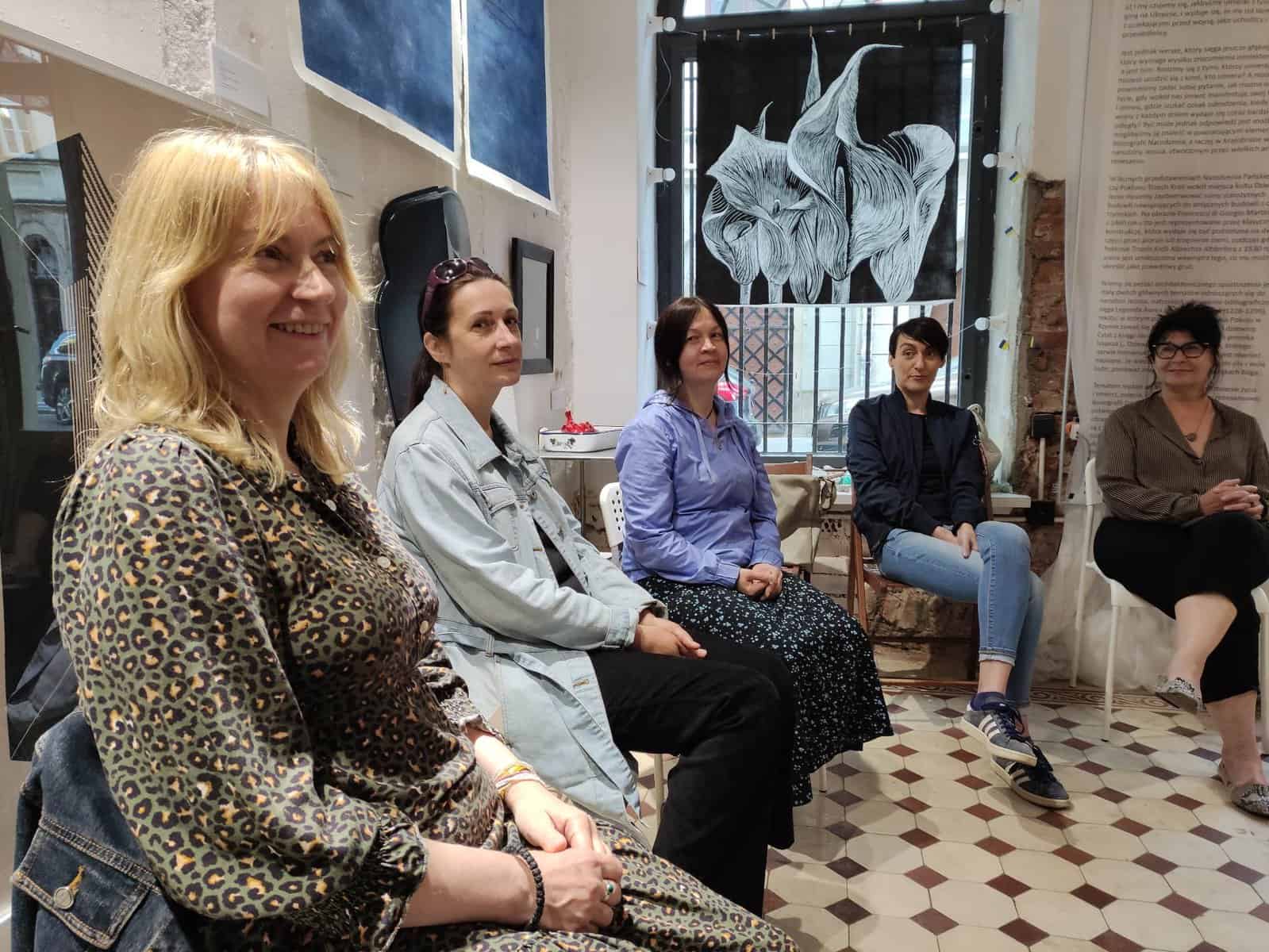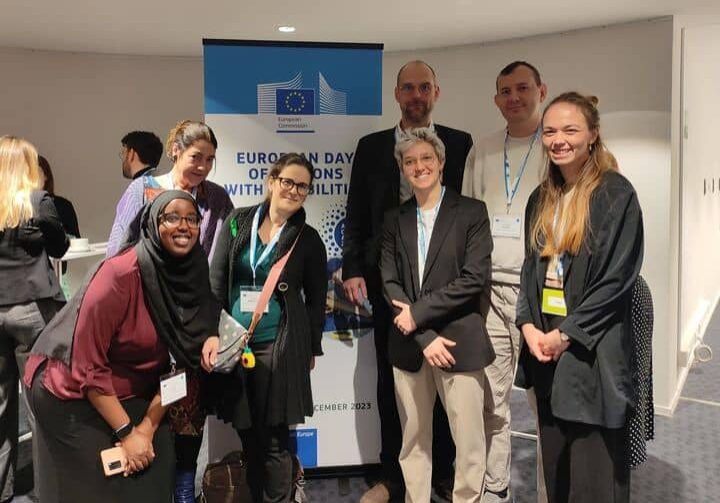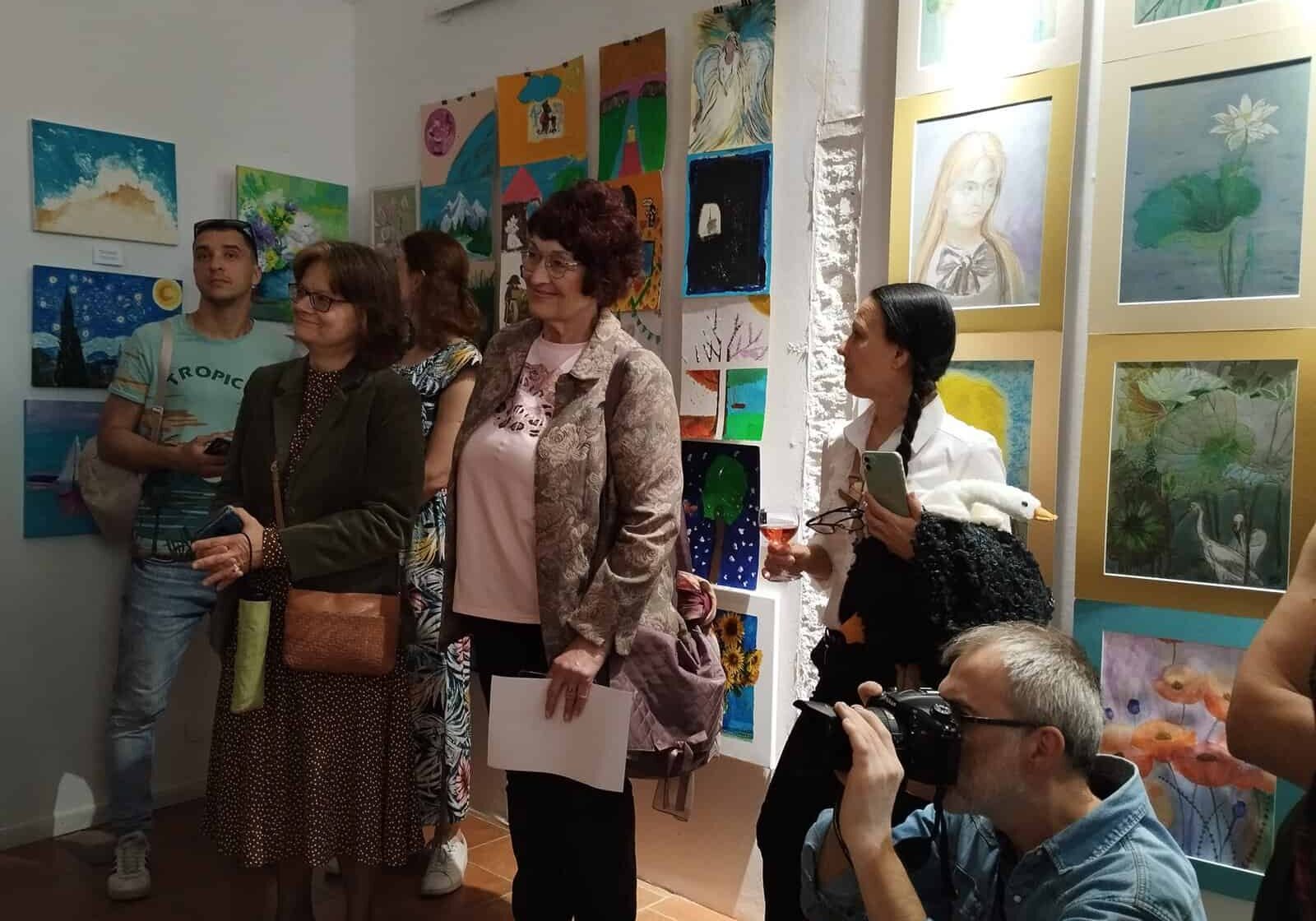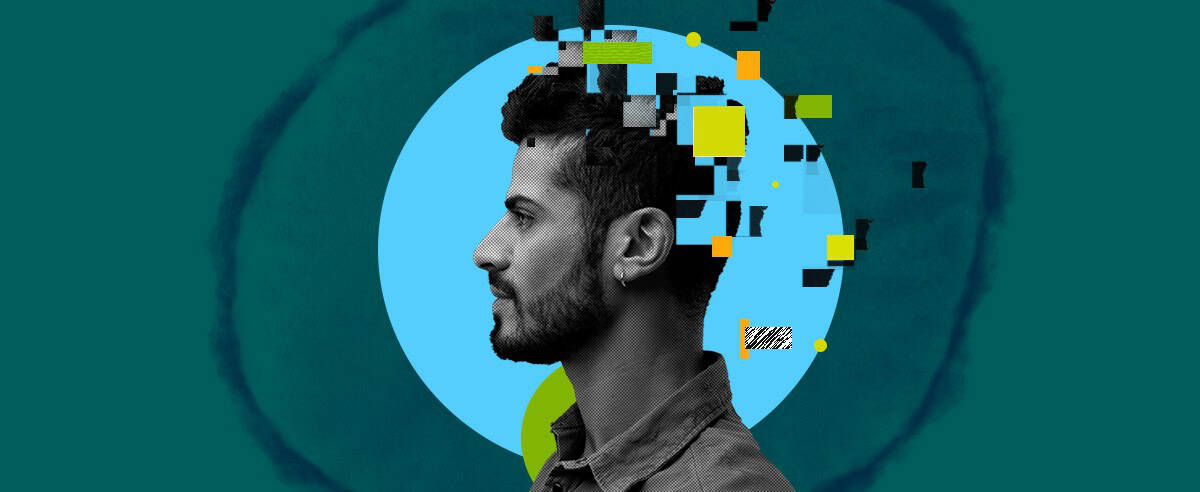Isolation and judgement contribute to the mental health problems of many people across Europe. In Poland, however, the Human Foundation (Fundacja Człowiek) is standing as a beacon of hope. Founded by Mateusz Biernat, the organisation has become a model for supporting those in need. We sat down with Mateusz to learn more about the Foundation's groundbreaking work.
Mateusz Biernat knows all too well the journey of mental health recovery. After years of battling his own challenges, staying in mental health centres, and facing social exclusion, he envisioned a different path for others and co-founded the Human Foundation (Fundacja Człowiek). "In 2015, along with my wife Magda Biernat, we founded the Human Foundation to support all those who, like me in the past, are struggling to re-enter society after experiencing a mental health crisis," explains Mateusz. "Our Foundation unites people with lived experiences, volunteers, and supporters."
But Mateusz's story is more than just his challenges. His mental health experience doesn't define him. It is part of his journey, yes, but at the heart of it, he is a father, husband, advocate, and mental health professional working as a special educator, psychologist, and therapist. "My personal experiences are fundamental to the Human Foundation's work. Our activities, as well as advocacy for human rights, stem from my own personal experiences," he says.
It comes as no surprise that mental health concerns are undeniably on the rise across Europe. The lingering effects of the pandemic, the war in Ukraine, and the escalating cost-of-living crisis are contributing factors that have taken their toll on Europe's wellbeing. The World Health Organization (WHO) reported a 25% increase in anxiety and depression worldwide triggered by the pandemic's onset and have declared that social isolation and loneliness should be recognised a a public health problem and policy issue for people of all ages. The effects of social isolation and loneliness can significantly impact a person's mental and physical health and its mortality effects are comparable to that of smoking, obesity, and physical inactivity.
Nearly half (46%) of Europeans experienced an emotional or psychosocial problem in 2023. The European Commission responded by prioritising mental health with €1.23 billion of funding and 20 new initiatives, signaling a growing understanding of recognising mental health as just as important as physical health.
Closer to Mateusz in Poland, under its National Health programme, the country launched the WHO Mental Health Gap Action Programme (mhGAP), an evidence-based approach to upscaling capacity and services for mental health conditions, under its National Health Programme-a major step towards addressing the unmet mental health needs of the population.
But impactful change often starts on a smaller scale: within communities, and through personal stories. As Mateusz says, he's not just a mental health professional; he's a "survivor of psychiatry.” This personal experience is the driving force behind the Foundation.
The Human Foundation's mission is to serve as a beacon of support for those marginalised by mental health problems. They strive to reshape societal perceptions of mental health problems, advocating for pathways to recovery and social integration. Mateusz's is a testament to the importance of fostering empathy and promoting comprehensive approaches to mental health and wellbeing, both within communities and among policymakers.
"Recognising the importance of social support, and acceptance, and understanding, my role, and ours as a Foundation, is to redefine the understanding of mental health as a dynamic state of inner balance, enabling individuals to use their abilities in harmony with universal social values," he continues.
Social support, acceptance, and understanding are the basic pillars of promoting comprehensive approaches to mental health and wellbeing—both within society and among policymakers.
Breaking the stigma: redefining mental health
The Human Foundation wasn't established just to help people navigate mental health problems. It goes beyond that, aiming to break down the barriers and stigma that often prevent individuals from reaching their full potential. The Foundation strives to foster a supportive community where people with lived experiences feel valued, understood, and empowered as members of society.
Many people living with mental health problems face ostracisation and are labelled with inaccurate stereotypes. They're often seen as 'sick' in a way that implies danger or aggression, rather than individuals on a path to recovery with 60% of patients in Poland in need of mental health support reporting they don't seek help due to stigma. This perception fuels exclusion and diminishes the potential of those facing mental health problems. It can even discourage people from seeking help, worsening their condition. Dismantling this harmful narrative and overcoming these misconceptions are at the core of the Foundation's work.
"The Human Foundation is an organisation that works for people who are excluded and stigmatised because of their ‘mental illness,’" explains Mateusz. "We want to reach out to people who have enormous inner potential but who, unfortunately, are perceived by the majority of society through the prism of untrue stereotypes."
The stigma surrounding the diagnosis of a mental health disorder can have devastating consequences. People can lose opportunities such as employment, and miss out on important life goals as it limits their ability to make interpersonal connections and reduces the sustainability of their relationships with others. Some even face involuntary hospitalisation based solely on their diagnosis.
People who face the enormous challenge of a mental health crisis are often forced to focus simultaneously on surviving in a community whose members contribute to their difficulties instead of helping them. This is due to the fact that "people with a psychiatric diagnosis are perceived by other members of society as dangerous, and in turn can feel worried, isolated, and excluded." explains Mateusz.
"The stigma attached to a psychiatric diagnosis can ruin or end someone's career, too. In some cases, people who have never committed a crime are involuntarily locked up in hospital centres for days, weeks, years, or even for life because of a psychiatric diagnosis," says Mateusz, stating that a "psychiatric diagnosis should not determine a person's life."
Education, policy, and inclusive communication
Education plays a key role. The Foundation actively promotes inclusive communication to break down stigma and create a more supportive environment for mental health recovery. Preventive and educational activities can equip everyone, from students to professionals, to support themselves and others. Recovery-friendly policies and practices, including empowered peer support workers, smooth hospital transitions, and employment opportunities for those in recovery, are another crucial piece of the puzzle.
But this isn't enough. The Foundation underlines the importance of using inclusive communication strategies to break the stigma. This includes using the right language and terminology. "Our upbringing, experiences, and the world around us shape the meaning we attach to words," explains Mateusz. "Words can be powerful tools, shaping how we think and act. The Foundation actively promotes inclusive communication to break down stigma and create a more supportive environment for mental health recovery.

'Just like anyone else'
This remarkable Foundation tackles another critical issue: empowering individuals with mental health problems to reclaim their rightful place in society. Their mission extends far beyond just support but helps to break barriers to foster a future of opportunities. "People in crisis feel rejected, excluded, and often ridiculed, losing the motivation to change their lives and stop developing their inner potential. This is why the Foundation's mission is to enable these people to develop themselves through awareness-raising activities and advocacy on their behalf," says Mateusz.
How do they do this? By fiercely advocating for the rights of individuals with mental ill-health, ensuring they have the necessary backing to return to work, pursue educational goals, and actively participate in their communities. But the Foundation's work goes beyond individual experiences. They aim to bring the public closer to the reality of the problems faced by those with mental ill-health, highlighting the possibility of recovery through practical efforts.
Mateusz's unwavering dedication to human rights fuels the Foundation's advocacy efforts. "Be the change you wish to see in the world," he says, echoing Mahatma Gandhi's famous quote. Since 2018, the Foundation has played a key role in the European Day of Persons with Disabilities, advocating for humane treatment of those in mental health crises. A definitive moment was Mateusz's 2019 lecture on coercion in psychiatric care at the European Parliament.
At the national level, the Foundation actively contributes as a member of the Mental Health Council of the Minister of Health. Their international reach extends to the Human Rights Committee of Mental Health Europe, where they continuously push for progress in mental health care.
The Foundation's pursuit of these objectives takes shape through specific activities such as: promoting mental health awareness and education within society, advocating for the full participation of individuals with mental health problems in social, professional, and cultural life, disseminating knowledge about the causes of mental ill-health and how to support wellbeing, and building a nationwide network of support for those struggling with mental health problems.


The Foundation doesn't just speak for its members; it empowers them to share their stories to combat stigma and misconceptions. By sharing these real-life experiences, they shed light on the realities of the impact of living with poor mental health. These powerful testimonies show that people with mental health diagnoses are 'just like everyone else'. They highlight that it's the stigma, exclusion, and lack of opportunities, not the ill-health itself, that push people to the margins of society. "By sharing people's real stories, we show that mental health diagnoses don't define who you are. Stigma, exclusion, and a lack of opportunity contribute to marginalisation. Through our work, we also demonstrate that recovery is possible," says Mateusz.
The interactive support map: empowering individuals
Even before the COVID-19 pandemic, mental health problems were prevalent, affecting 1 in 6 people in the EU at a cost of 4% of GDP. The pandemic significantly worsened the situation, creating isolation, fear, and disruptions to daily life. Accessing mental health services became more challenging, with the private sector stepping up to provide online solutions. "The pandemic profoundly affected societal mental health," explains Mateusz.
In response to the pandemic's social isolation and trauma, the Foundation launched a groundbreaking interactive map in 2020. This nationwide Polish resource, boasting over 4,300 resources and recently including Ukrainian content, has proven to be a successful tool to combat isolation and connect people with mental health services and support groups.
This successful initiative is now inspiring others. The Foundation participates in the European initiative MENTALITY, a pilot programme showcasing the support map as a good practice. Countries such as Slovakia and Romania are exploring the implementation of the map, demonstrating its adaptability to diverse needs and cultures. The map itself continues to evolve, boasting over 4,300 resources and recently adding Ukrainian content to aid refugees.
Beyond the individual: a community based-approach
Of course, addressing the impact of mental health problems stretches far beyond individual responsibility. The Foundation advocates for a community-based approach, one that builds strong local support systems. This means that organisations, professionals in educational authorities, employment settings, emergency services such as the police, and even self-help groups can work together to empower recovery and social reintegration.
"Imagine a network of local actors, each with clear roles, working together to support people in mental health crises," explains Mateusz. "This system's ultimate goal should be to facilitate recovery and get people back into their communities and workplaces."
Similarly, grassroots organisations also play a crucial role, according to Mateusz. "Local action is extremely important," he emphasises. "We live in a world of complex processes, overloaded with information." Simple yet effective solutions are what's needed most.
EU elections: a time for change?
A recent surge in mental health problems across Europe highlights the need for improved mental healthcare. With the imminent EU elections, the Foundation advocates for policies that prioritise mental health with long-term goals, clear metrics, and more dedicated funding. "The development and implementation of policies and services should be based on the fundamental principle of co-creation through meaningful involvement of all stakeholders, especially people with lived experience and their advocates," says Masteusz.
"Mental health should be an integral part of future EU health security plans. We need to treat the whole person, taking into account mental and social factors, rather than just the symptoms of an illness. These changes should be cross-sectoral and take into account the UN Convention on the Rights of Persons with Disabilities (CRPD)," explains Masteusz.
Key priorities for the next EU mandate that need to be implemented are the promotion and protection of the rights of people with mental health problems and psychosocial disabilities, "the creation of effective support systems, the elimination of coercion in mental health facilities, and the establishment of a directive on equal treatment and anti-discrimination. The next term of the European Parliament and the Commission must be based on a psychosocial approach to mental health and wellbeing."
Envisioning a brighter future
As we navigated European Mental Health Week last month, the Human Foundation reminds us that mental health awareness is crucial every day, every week, and every month, of every year. None of us are immune to it or its effects and each of us must learn to accept diversity. "Being an advocate for change that many don't want or don't see the need for is not easy. You must be relentless and confrontational," explains Mateusz.
"The most important factor is to believe in what you are doing, to believe in human beings, the right to self-determination, and the right to live with dignity. Systemic change is a difficult and lengthy process, but this doesn't mean we should stop pushing. I think the most important thing is to build coalitions of like-minded organisations, because in unity there is strength and a chance for horizontal change."
The Foundation will continue to fight for human rights, create informed societies, and advocate for systemic change in mental health care and support. If we amplify the voices of those with lived experiences, we can break the stigma and build a more inclusive Europe.

